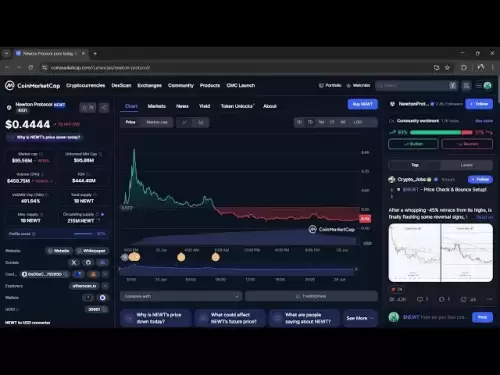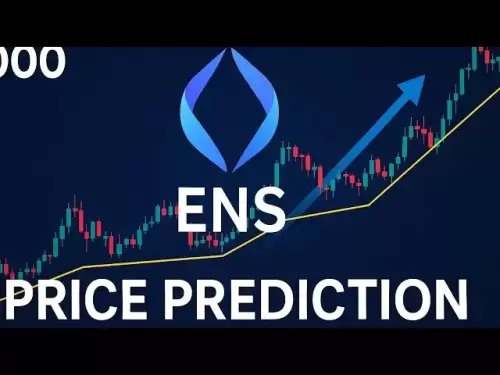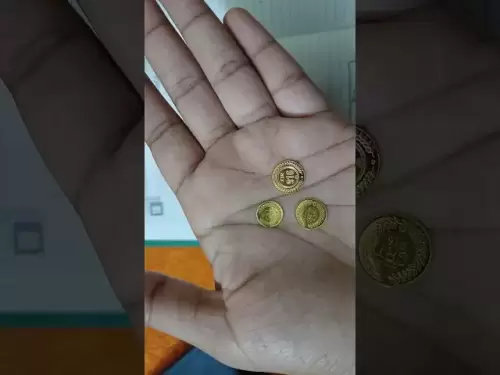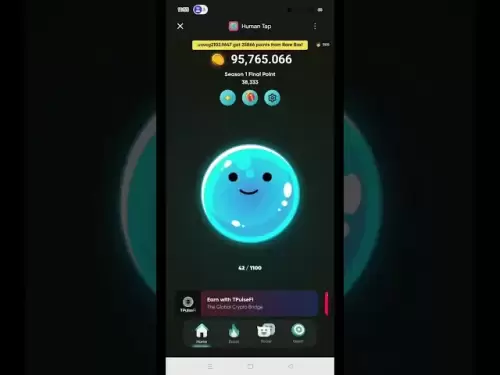-
 Bitcoin
Bitcoin $107,467.9126
1.26% -
 Ethereum
Ethereum $2,447.5288
-0.12% -
 Tether USDt
Tether USDt $1.0005
0.00% -
 XRP
XRP $2.1921
0.13% -
 BNB
BNB $647.2897
0.50% -
 Solana
Solana $144.8627
-0.37% -
 USDC
USDC $0.9996
-0.03% -
 TRON
TRON $0.2732
0.10% -
 Dogecoin
Dogecoin $0.1652
-0.18% -
 Cardano
Cardano $0.5700
-2.87% -
 Hyperliquid
Hyperliquid $37.0274
-1.81% -
 Bitcoin Cash
Bitcoin Cash $484.6957
0.19% -
 Sui
Sui $2.7354
-2.19% -
 Chainlink
Chainlink $13.1727
-1.49% -
 UNUS SED LEO
UNUS SED LEO $8.9978
-0.04% -
 Stellar
Stellar $0.2421
-2.33% -
 Avalanche
Avalanche $17.5633
-3.51% -
 Toncoin
Toncoin $2.8476
-1.94% -
 Shiba Inu
Shiba Inu $0.0...01166
-0.56% -
 Litecoin
Litecoin $85.1071
0.09% -
 Hedera
Hedera $0.1502
-2.96% -
 Monero
Monero $310.2774
-1.64% -
 Dai
Dai $0.9999
-0.01% -
 Polkadot
Polkadot $3.3584
-1.88% -
 Ethena USDe
Ethena USDe $1.0003
-0.04% -
 Bitget Token
Bitget Token $4.4443
2.90% -
 Pi
Pi $0.6242
14.04% -
 Uniswap
Uniswap $6.9774
-2.86% -
 Pepe
Pepe $0.0...09535
-5.05% -
 Aave
Aave $256.7574
-3.35%
How to get SOL for free through airdrops or rewards?
To get free SOL, participate in legitimate airdrops and rewards programs, but always research and verify to avoid scams and understand the risks involved.
Mar 27, 2025 at 02:22 pm
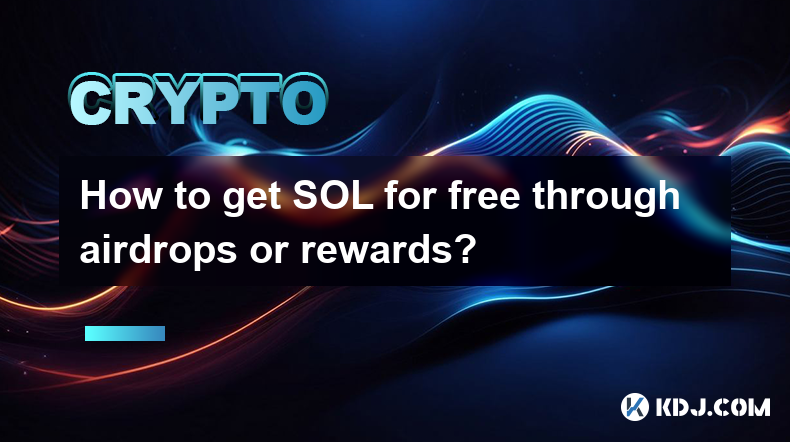
Understanding Solana (SOL) Airdrops and Rewards
Solana (SOL), a high-performance blockchain, has seen significant growth, attracting many users. Many are keen to acquire SOL without directly purchasing it. This article explores legitimate ways to potentially obtain free SOL through airdrops and rewards programs. It's crucial to remember that there's no guaranteed method to get free cryptocurrency, and any opportunity should be approached with caution to avoid scams.
What are Airdrops?
Airdrops are essentially free cryptocurrency distributions. Projects often conduct airdrops to increase awareness and distribute their tokens to a wider audience. These airdrops can be targeted at specific groups, such as existing holders of other cryptocurrencies or active participants in specific decentralized applications (dApps). The criteria for eligibility vary widely. Always verify the legitimacy of an airdrop before participating. Scammers frequently mimic legitimate airdrops to steal user information or cryptocurrency.
How to Find Legitimate Airdrops?
Finding legitimate airdrops requires diligence and research. Avoid promises of easy, guaranteed SOL. Reputable sources of information include official announcements from Solana projects on their websites and social media channels. Always double-check the information on multiple sources before engaging. Look for airdrops announced on verified accounts and avoid those spread through unofficial channels or unsolicited messages.
Participating in Airdrops: A Step-by-Step Guide
Participating in a legitimate SOL airdrop typically involves these steps:
- Research the Project: Thoroughly research the project offering the airdrop. Understand its goals, technology, and team.
- Meet the Eligibility Criteria: Airdrops often have specific requirements. This might include holding other cryptocurrencies, participating in community events, or using specific dApps.
- Complete the Required Tasks: Tasks might involve following the project on social media, joining their Telegram or Discord groups, retweeting their announcements, or completing simple tasks within their dApp.
- Provide Your SOL Address: You'll need to submit your Solana wallet address to receive the airdropped SOL. Ensure you use a secure and reliable wallet.
- Monitor for Distribution: After completing the tasks, monitor your wallet for the distribution of the airdropped SOL. The timeframe for distribution can vary.
Solana Rewards Programs
Besides airdrops, some platforms offer rewards for using their services or participating in their ecosystem. These programs often incentivize users to stake SOL, participate in governance, or use specific dApps built on the Solana blockchain. Understanding the terms and conditions of these programs is crucial. Some programs might require a minimum stake or participation level to qualify for rewards.
Staking SOL for Rewards
Staking your SOL involves locking up your tokens to help secure the Solana network. In return, you receive rewards in the form of additional SOL. Staking involves risk; your SOL is locked, and the rewards are not guaranteed. Research different staking providers and understand the risks involved before staking your SOL. Choose reputable staking providers with a proven track record.
Participating in Solana Governance
Solana allows token holders to participate in governance decisions. This often involves voting on proposals related to the network's development. Participating in governance can provide rewards in the form of SOL or other incentives. However, understanding the proposals and their implications is crucial before casting your vote.
Using Solana DeFi Platforms
Decentralized finance (DeFi) platforms on Solana offer various opportunities to earn rewards. This could involve providing liquidity to decentralized exchanges (DEXs), lending your SOL, or participating in yield farming. DeFi involves significant risks, including impermanent loss and smart contract vulnerabilities. Thoroughly research and understand the risks before participating in DeFi activities.
Identifying and Avoiding Airdrop Scams
Recognizing and avoiding scams is crucial. Never share your seed phrase or private keys with anyone. Legitimate airdrops will never ask for these. Be wary of unsolicited messages promising free SOL, especially those requiring upfront payments or involving suspicious websites. Always verify information through official channels.
Frequently Asked Questions
Q: Are there guaranteed ways to get free SOL?
A: No, there are no guaranteed methods to get free SOL. Any opportunity claiming otherwise is likely a scam.
Q: How can I verify the legitimacy of an airdrop?
A: Verify the airdrop announcement on the project's official website and social media channels. Check multiple sources and be wary of unsolicited messages.
Q: What are the risks of participating in airdrops?
A: Risks include scams, phishing attempts, and the potential for the project to fail. Always conduct thorough research.
Q: What are the risks associated with staking SOL?
A: Risks include the potential loss of your staked SOL due to network issues or vulnerabilities in the staking provider. Rewards are not guaranteed.
Q: What are the risks involved in Solana DeFi?
A: DeFi risks include impermanent loss, smart contract vulnerabilities, and the potential for rug pulls. Thorough research and understanding of these risks are essential.
Disclaimer:info@kdj.com
The information provided is not trading advice. kdj.com does not assume any responsibility for any investments made based on the information provided in this article. Cryptocurrencies are highly volatile and it is highly recommended that you invest with caution after thorough research!
If you believe that the content used on this website infringes your copyright, please contact us immediately (info@kdj.com) and we will delete it promptly.
- Bitcoin's Market Dominance: A Virtual Asset Overview in '25
- 2025-06-26 12:25:13
- Ministry of Finance, Silver Coin, Golden Year: A Collector's Gem
- 2025-06-26 12:25:13
- Fiat Fading, Bitcoin at $107K, USD at Cycle Lows: What's Going On?
- 2025-06-26 13:25:12
- XRP Price Prediction: June 26th - Breakout Incoming?
- 2025-06-26 12:50:12
- Railway Protests and Strikes: A Global Perspective
- 2025-06-26 13:07:14
- Bitcoin, Ethereum, and Crypto ETFs: What's the Deal?
- 2025-06-26 13:25:12
Related knowledge

How to customize USDT TRC20 mining fees? Flexible adjustment tutorial
Jun 13,2025 at 01:42am
Understanding USDT TRC20 Mining FeesMining fees on the TRON (TRC20) network are essential for processing transactions. Unlike Bitcoin or Ethereum, where miners directly validate transactions, TRON uses a delegated proof-of-stake (DPoS) mechanism. However, users still need to pay bandwidth and energy fees, which are collectively referred to as 'mining fe...

USDT TRC20 transaction is stuck? Solution summary
Jun 14,2025 at 11:15pm
Understanding USDT TRC20 TransactionsWhen users mention that a USDT TRC20 transaction is stuck, they typically refer to a situation where the transfer of Tether (USDT) on the TRON blockchain has not been confirmed for an extended period. This issue may arise due to various reasons such as network congestion, insufficient transaction fees, or wallet-rela...

How to cancel USDT TRC20 unconfirmed transactions? Operation guide
Jun 13,2025 at 11:01pm
Understanding USDT TRC20 Unconfirmed TransactionsWhen dealing with USDT TRC20 transactions, it’s crucial to understand what an unconfirmed transaction means. An unconfirmed transaction is one that has been broadcasted to the blockchain network but hasn’t yet been included in a block. This typically occurs due to low transaction fees or network congestio...

How to check USDT TRC20 balance? Introduction to multiple query methods
Jun 21,2025 at 02:42am
Understanding USDT TRC20 and Its ImportanceUSDT (Tether) is one of the most widely used stablecoins in the cryptocurrency market. It exists on multiple blockchain networks, including TRC20, which operates on the Tron (TRX) network. Checking your USDT TRC20 balance accurately is crucial for users who hold or transact with this asset. Whether you're sendi...

What to do if USDT TRC20 transfers are congested? Speed up trading skills
Jun 13,2025 at 09:56am
Understanding USDT TRC20 Transfer CongestionWhen transferring USDT TRC20, users may occasionally experience delays or congestion. This typically occurs due to network overload on the TRON blockchain, which hosts the TRC20 version of Tether. Unlike the ERC20 variant (which runs on Ethereum), TRC20 transactions are generally faster and cheaper, but during...

The relationship between USDT TRC20 and TRON chain: technical background analysis
Jun 12,2025 at 01:28pm
What is USDT TRC20?USDT TRC20 refers to the Tether (USDT) token issued on the TRON blockchain using the TRC-20 standard. Unlike the more commonly known ERC-20 version of USDT (which runs on Ethereum), the TRC-20 variant leverages the TRON network's infrastructure for faster and cheaper transactions. The emergence of this version came as part of Tether’s...

How to customize USDT TRC20 mining fees? Flexible adjustment tutorial
Jun 13,2025 at 01:42am
Understanding USDT TRC20 Mining FeesMining fees on the TRON (TRC20) network are essential for processing transactions. Unlike Bitcoin or Ethereum, where miners directly validate transactions, TRON uses a delegated proof-of-stake (DPoS) mechanism. However, users still need to pay bandwidth and energy fees, which are collectively referred to as 'mining fe...

USDT TRC20 transaction is stuck? Solution summary
Jun 14,2025 at 11:15pm
Understanding USDT TRC20 TransactionsWhen users mention that a USDT TRC20 transaction is stuck, they typically refer to a situation where the transfer of Tether (USDT) on the TRON blockchain has not been confirmed for an extended period. This issue may arise due to various reasons such as network congestion, insufficient transaction fees, or wallet-rela...

How to cancel USDT TRC20 unconfirmed transactions? Operation guide
Jun 13,2025 at 11:01pm
Understanding USDT TRC20 Unconfirmed TransactionsWhen dealing with USDT TRC20 transactions, it’s crucial to understand what an unconfirmed transaction means. An unconfirmed transaction is one that has been broadcasted to the blockchain network but hasn’t yet been included in a block. This typically occurs due to low transaction fees or network congestio...

How to check USDT TRC20 balance? Introduction to multiple query methods
Jun 21,2025 at 02:42am
Understanding USDT TRC20 and Its ImportanceUSDT (Tether) is one of the most widely used stablecoins in the cryptocurrency market. It exists on multiple blockchain networks, including TRC20, which operates on the Tron (TRX) network. Checking your USDT TRC20 balance accurately is crucial for users who hold or transact with this asset. Whether you're sendi...

What to do if USDT TRC20 transfers are congested? Speed up trading skills
Jun 13,2025 at 09:56am
Understanding USDT TRC20 Transfer CongestionWhen transferring USDT TRC20, users may occasionally experience delays or congestion. This typically occurs due to network overload on the TRON blockchain, which hosts the TRC20 version of Tether. Unlike the ERC20 variant (which runs on Ethereum), TRC20 transactions are generally faster and cheaper, but during...

The relationship between USDT TRC20 and TRON chain: technical background analysis
Jun 12,2025 at 01:28pm
What is USDT TRC20?USDT TRC20 refers to the Tether (USDT) token issued on the TRON blockchain using the TRC-20 standard. Unlike the more commonly known ERC-20 version of USDT (which runs on Ethereum), the TRC-20 variant leverages the TRON network's infrastructure for faster and cheaper transactions. The emergence of this version came as part of Tether’s...
See all articles




















